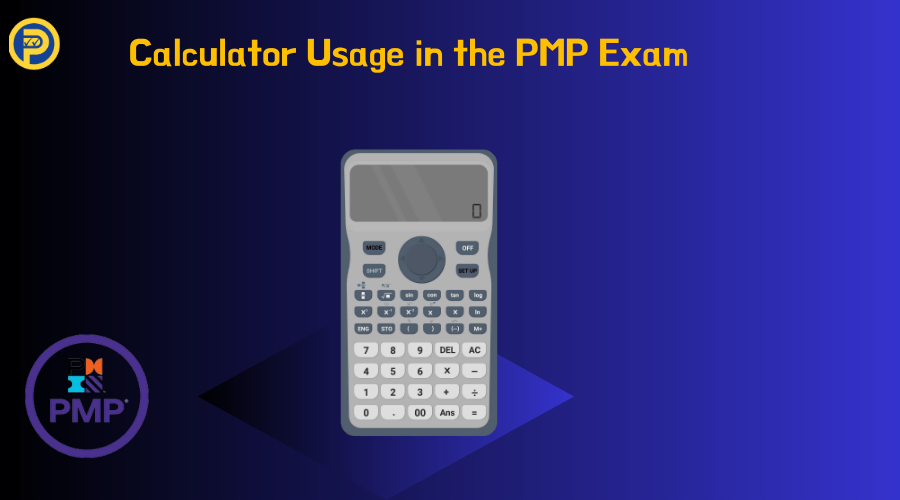When preparing for the Project Management Professional (PMP) certification exam, candidates often wonder about the use of calculators during the test. Understanding the rules surrounding this can alleviate anxiety and help with preparation.
You can kickstart your exam preparation by using our PMP Test Prep resources
Calculator Usage in the PMP Exam
Yes, you are allowed to use a calculator during the PMP certification exam. However, there are specific guidelines regarding the type of calculator permitted.
Candidates can utilize a basic four-function calculator, which can perform addition, subtraction, multiplication, and division. This calculator must be non-programmable and cannot have advanced functions or features that could assist in more complex calculations.

Options for Calculators
During the exam, candidates have two main options for using a calculator. First, you can use the built-in calculator provided within the computer testing environment.
This electronic calculator is designed to meet the exam’s requirements and is readily accessible during your test. Alternatively, if you prefer a physical device, you can request a handheld calculator from Pearson VUE staff at the testing center.
This option ensures that all candidates have access to a basic calculator without needing to bring one from home.
Restrictions on Personal Calculators
It is important to note that personal calculators are not allowed in the exam room. Before entering, all personal items, including calculators, cell phones, and other electronic devices, must be stored in a designated locker.
Candidates will retain only the key to their locker during the exam. This policy helps maintain security and integrity throughout the testing process.
Types of Calculations on the Exam
The calculations required during the PMP exam are generally straightforward and primarily involve basic algebraic functions.
Candidates may need to perform calculations related to earned value management, cost estimates, schedule variance, and other fundamental project management concepts.
While some questions will require calculations, many candidates find that they do not need to rely heavily on their calculators.
Check this out: PMP Free Questions
Importance of Preparation
Even though calculators are allowed, candidates should focus on understanding key formulas and concepts rather than solely relying on calculation tools.
Familiarity with essential project management formulas—such as those for calculating earned value (EV), cost variance (CV), and schedule variance (SV)—is crucial for success on the exam.
Practicing these calculations during your study sessions can enhance your confidence and efficiency when answering related questions.
Related post: PMP Study Materials for Project Management Students
FAQS
What is Allowed During the PMP Exam?
During the PMP exam, candidates are allowed specific items to ensure a smooth testing experience. You can bring a basic, non-programmable calculator, which may be provided by the testing center if preferred.
Personal items, including bags and electronic devices, must be stored in designated lockers. Additionally, you can have comfort aids like water bottles and tissues, subject to inspection.
The exam environment is designed to minimize distractions, allowing candidates to focus solely on answering the 180 questions within the allotted time.
Can I Use a Calculator in a CAPM Exam?
No, you cannot use a calculator during the CAPM exam. Unlike the PMP exam, which allows basic calculators, the CAPM exam does not permit any external devices.
Instead, candidates must rely on their understanding of project management concepts and calculations without calculator assistance.
The exam consists of 150 multiple-choice questions that test knowledge across various domains of project management. Therefore, thorough preparation and familiarity with essential formulas are crucial for success on the CAPM exam.
Is 70% Enough to Pass PMP?
A score of 70% on the PMP exam may not be sufficient to guarantee a pass, as PMI does not disclose a fixed passing percentage. Historically, a common belief is that around 61% is the minimum score needed, but this is not officially confirmed.
The passing score can vary based on the difficulty of the questions presented during the exam. It's advisable to aim for higher scores, ideally around 75% to 80% on practice tests, to increase the likelihood of passing.

